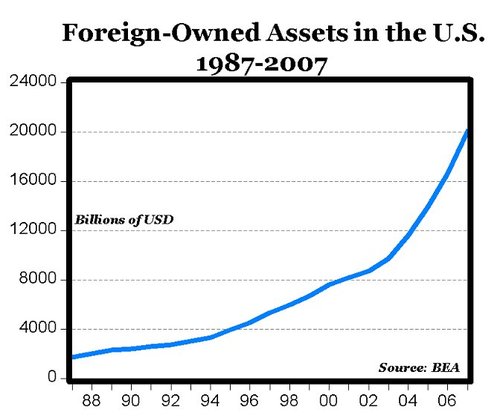Y'all may have already seen these -- being on vacation, I am a little late to the table on both. The first is a report on the Missouri state ethanol mandate:
A report from a Missouri-based research organization
debunks the claim that Missourians are saving money through a state law
requiring that retail gasoline contain a minimum of 10% ethanol. The
report is in reaction to an assertion by the Missouri Corn
Merchandising Association (MCMA), alleging that Missourians will save
more than US$ 285 million through the E-10 mandate in 2008, and nearly
US$ 2 billion over the following decade.
The MCMA arrived at these numbers by taking the price
difference between pure-grade gasoline and E-10 blended fuel, and
multiplying it by Missouri's projected annual consumption.
However, the report by the Show Me Institute reveals two fundamental flaws with this calculation. One
is that it fails to take into account the fact that E-10 blended fuel
is cheaper because ethanol producers receive tax credits and other
subsidies.
"Government officials cannot simply take tax dollars from
the public, give those tax dollars to ethanol blenders, and then have
ethanol supporters tell the public that ethanol is saving them money
with cheaper fuel as though the subsidy never existed," write the
report's authors, Justin P. Hauke and David Stokes.
The MCMA also does not take into account that E-10
blended fuel is about 2.5% less efficient than pure-grade gasoline,
meaning that Missourians will be filling their tanks more often.
When both of these factors are taken into account, the ethanol blending mandates are shown to be costing Missourians about US$ 118 million per year.
The second is a World Bank report on the effect of ethanol mandates on food prices:
Biofuels have forced global food prices up by 75% - far
more than previously estimated - according to a confidential World Bank
report obtained by the Guardian.
The damning unpublished assessment is based on the most
detailed analysis of the crisis so far, carried out by an
internationally-respected economist at global financial body.
The figure emphatically contradicts the US government's
claims that plant-derived fuels contribute less than 3% to food-price
rises. It will add to pressure on governments in Washington and across
Europe, which have turned to plant-derived fuels to reduce emissions of
greenhouse gases and reduce their dependence on imported oil.
Senior development sources believe the report, completed in
April, has not been published to avoid embarrassing President George
Bush.
"It would put the World Bank in a political hot-spot with the White House," said one yesterday....
[The report] argues that production of biofuels has
distorted food markets in three main ways. First, it has diverted grain
away from food for fuel, with over a third of US corn now used to
produce ethanol and about half of vegetable oils in the EU going
towards the production of biodiesel. Second, farmers have been
encouraged to set land aside for biofuel production. Third, it has
sparked financial speculation in grains, driving prices up higher.
Other reviews of the food crisis looked at it over a much
longer period, or have not linked these three factors, and so arrived
at smaller estimates of the impact from biofuels. But the report
author, Don Mitchell, is a senior economist at the Bank and has done a
detailed, month-by-month analysis of the surge in food prices, which
allows much closer examination of the link between biofuels and food
supply.
The report points out biofuels derived from sugarcane, which Brazil specializes in, have not had such a dramatic impact.
All this stuff was known long before Congress voted for the most recent ethanol mandates. Why is it that the media, who cheerled such mandates for years, is able to apply any institutional skepticism only after the mandates have become law? Are we going to have to actually pass some awful version of carbon trading before anyone will consider its inherent problems?




